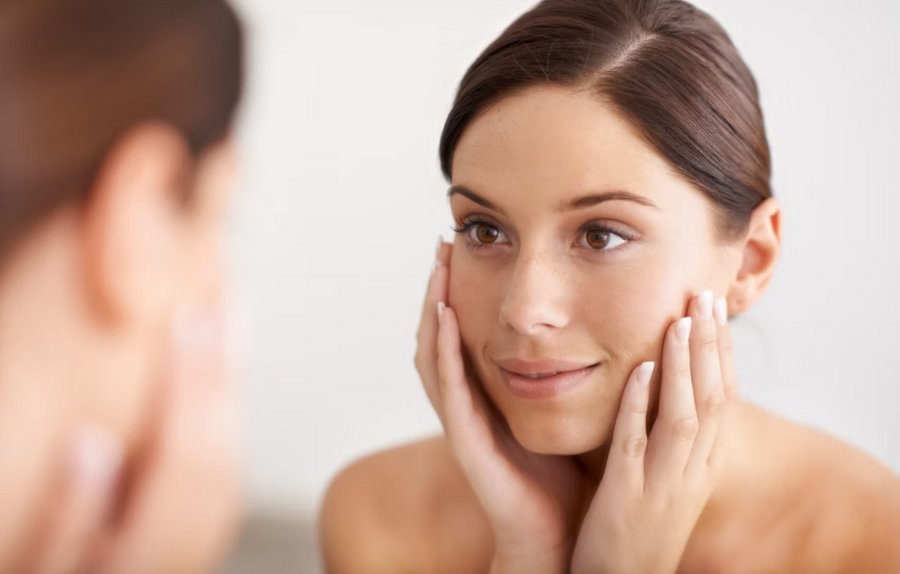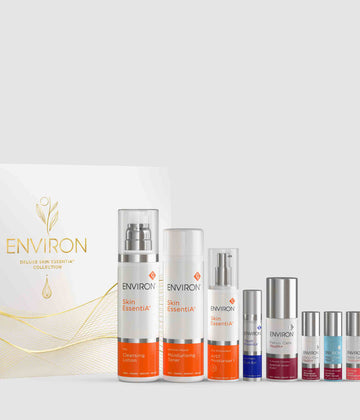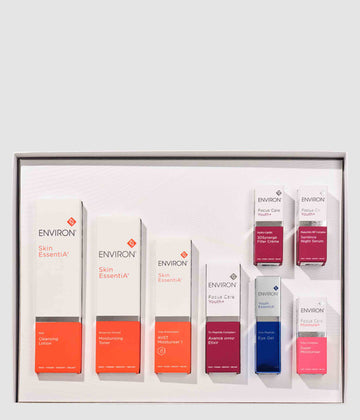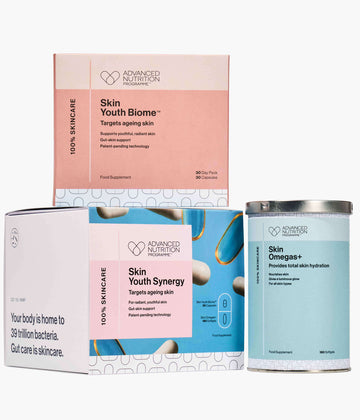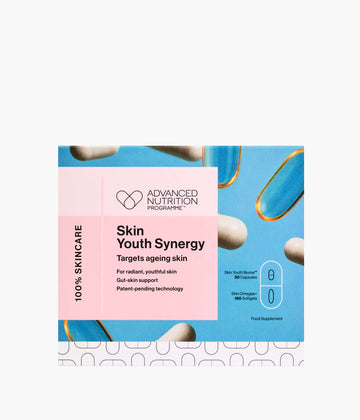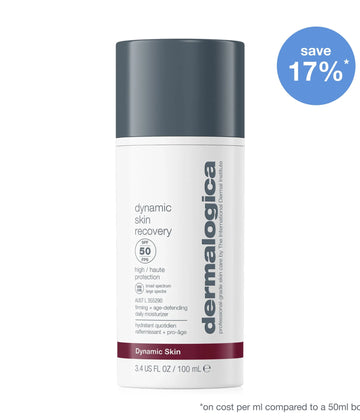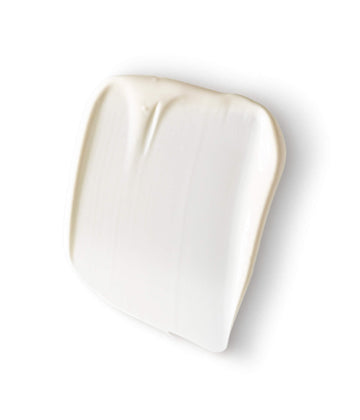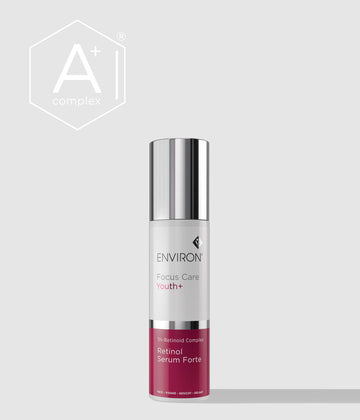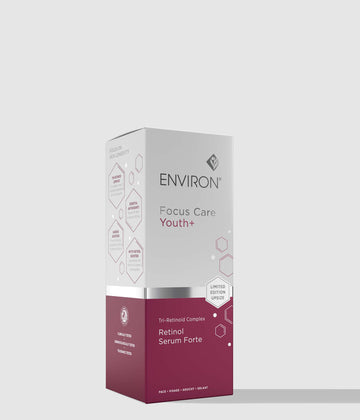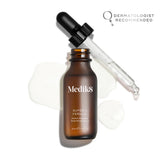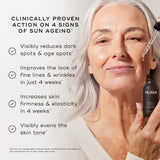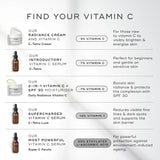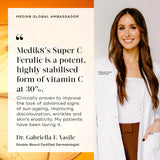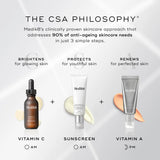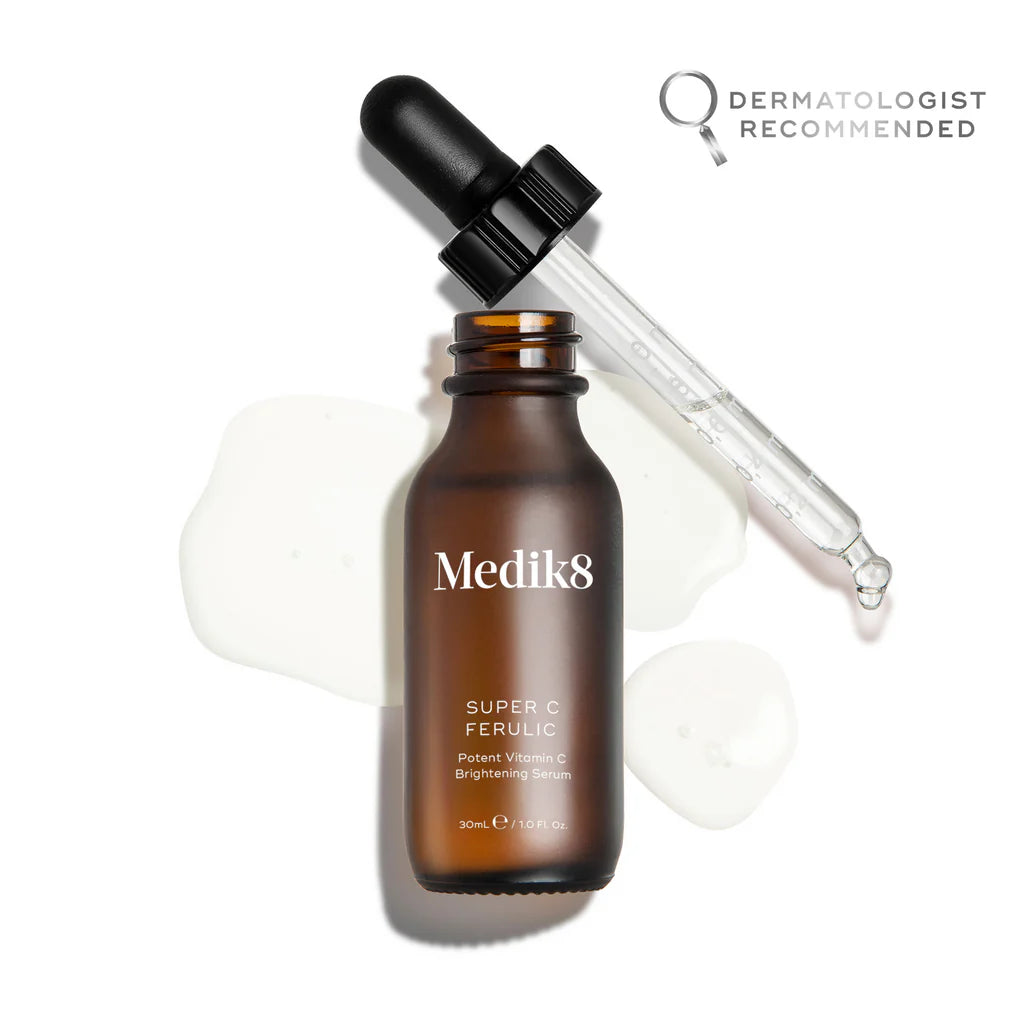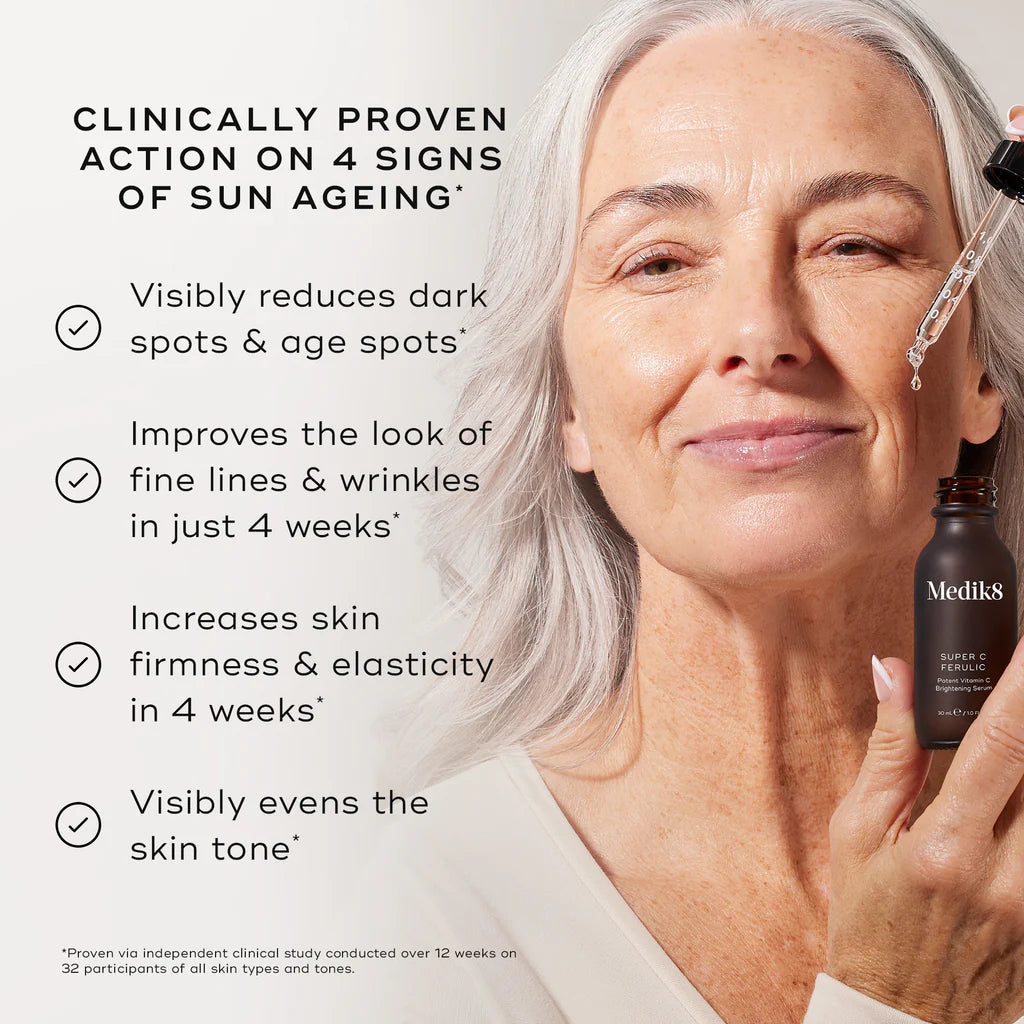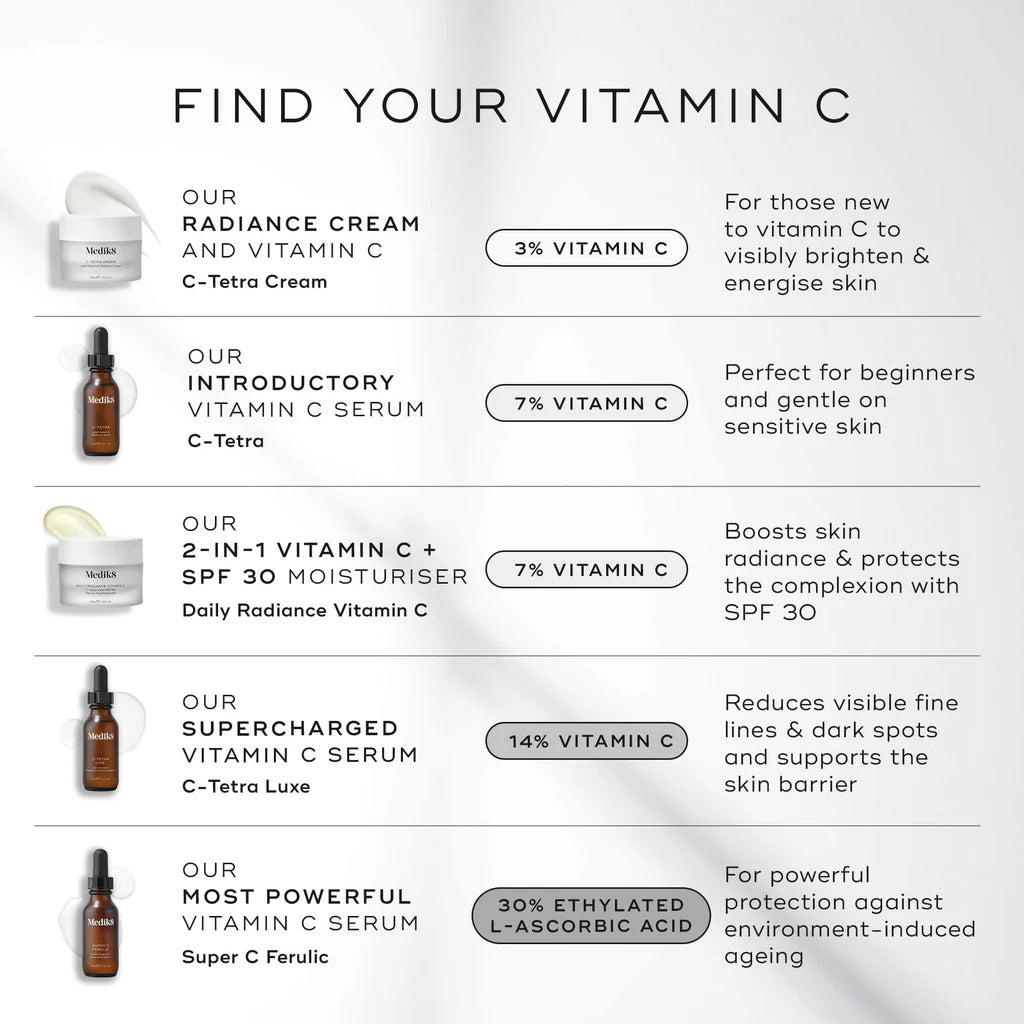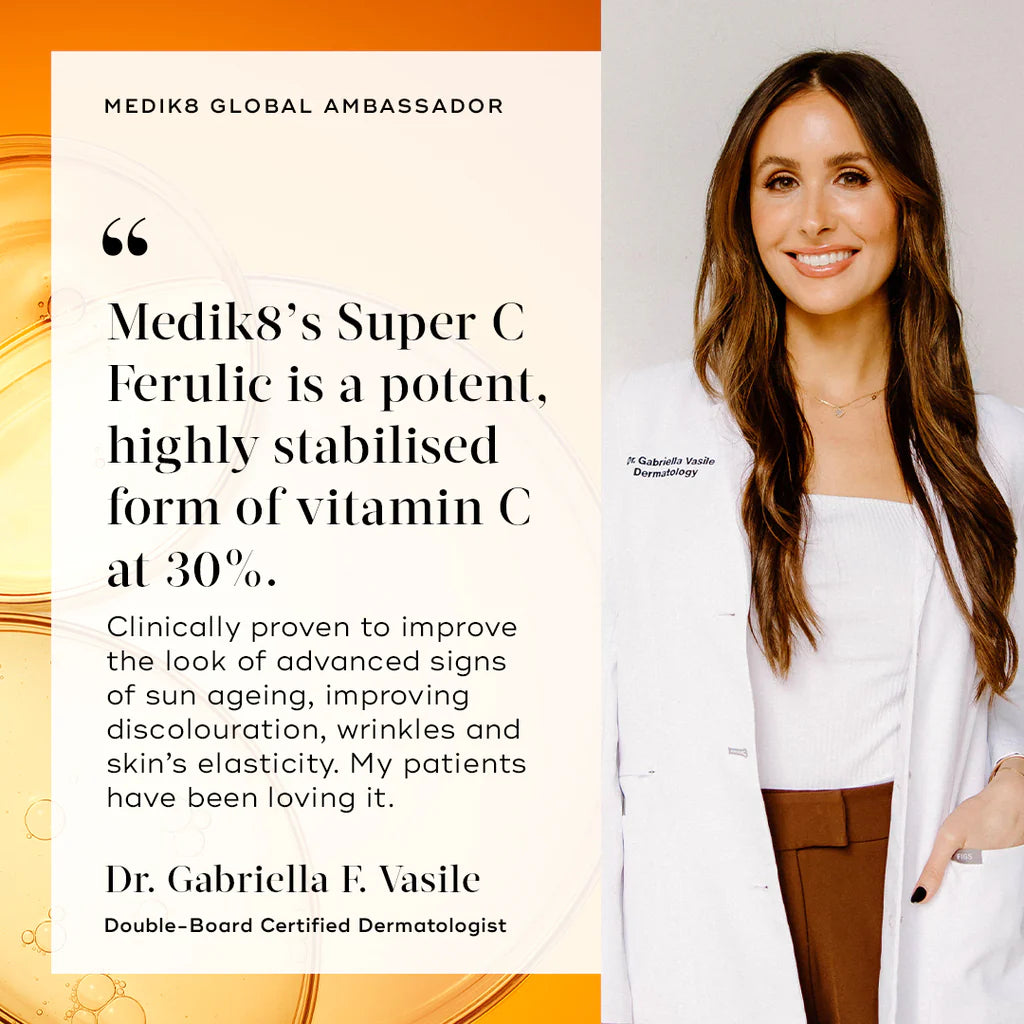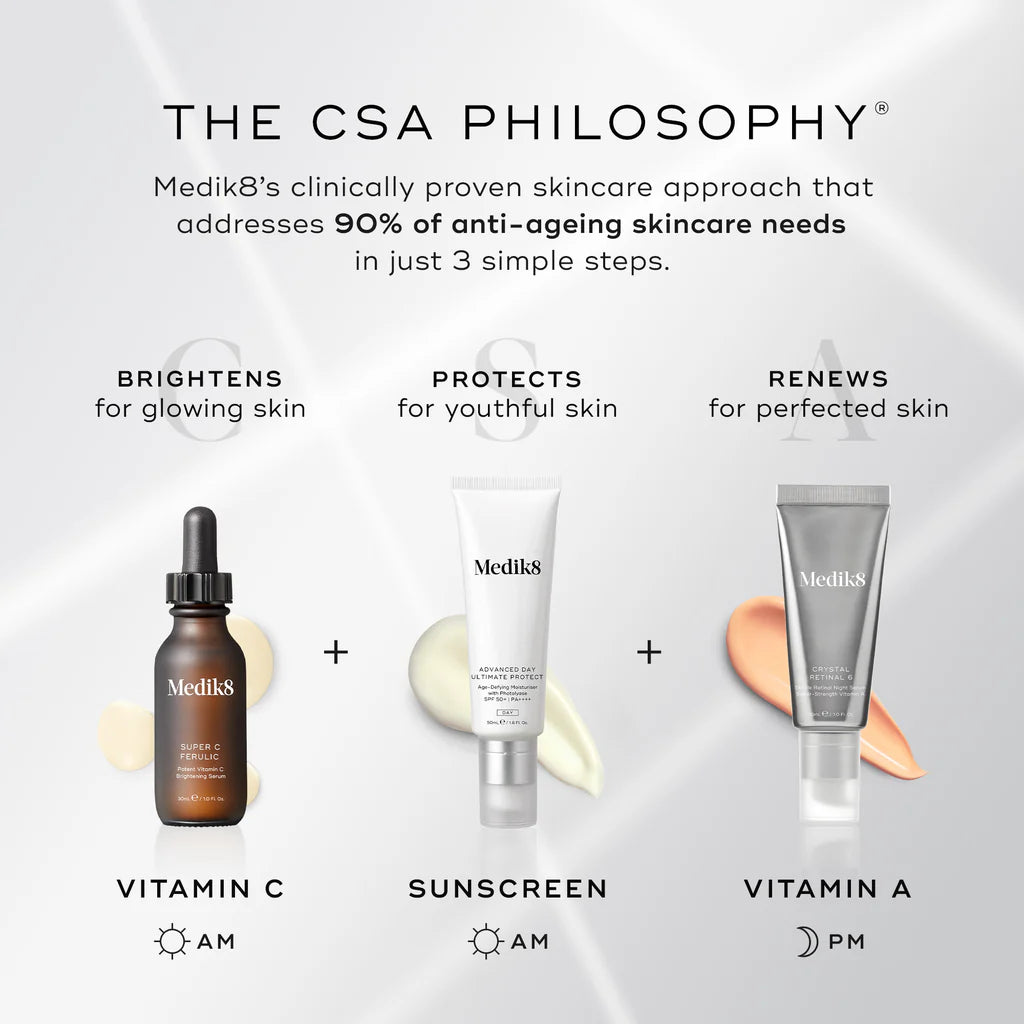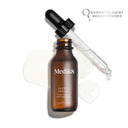Medik8
Medik8 products are built on the ground breaking methodology of the CSA philosophy. The simple yet impactful skincare regime follows the approach of Vitamin C + Sunscreen by day and Vitamin A by night.
Medik8 Vitamin C products like Medik8 C-Tetra focuses on building shields against daily life while promoting the production of collagen.
Medik8 sunscreen products like Medik8 Advanced Day Total Protect focus on high strengths sun protection to protect your skin from sun damage
Medik8 Vitamin A night creams and serums focus on cellular renewal and reduce production of sebum. Whether you’re starting out with Crystal Retinal 1 or advanced Intelligent Retinol 10TR, Medik8 Vitamin A serums are some of the most advanced in skincare


